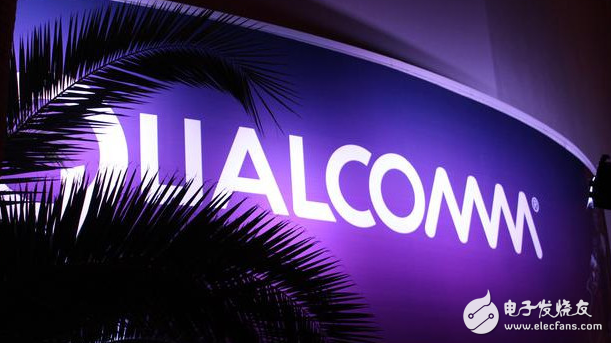The most embarrassing of the chip industry, its one move is concerned, this is not the latest Mate 10 with a mobile chip recently released, it is really eye-catching. However, Qualcomm immediately responded by claiming that it did not fear Huawei's actions.
Mate 10, which is equipped with the industry's first personal intelligence (AI) mobile chip, has recently made Huawei the limelight, which makes Qualcomm, a mobile chip overlord, somewhat embarrassing. However, Qualcomm quickly responded that the next step will increase investment in the AI ​​field.
At the Qualcomm 4G/5G Summit in Hong Kong, Keith Kressin, senior vice president of product management at Qualcomm, said in an interview with Tencent Technology that “increasing investment in the AI ​​field is mainly focused on improving the three aspects of CPU, GPU and DSP performance. Thereby better support for AI."

For example, he said, "A few years ago, we added a Hexagon vector image to the DSP. It is a huge library, 1024 bits. Through this library, you can build some matrix extensions for AI and collect relevant data behind it. And these data are important features of AI, so we need to increase investment in these three areas."
In order to speed up the execution speed of AI applications on smart phones, related companies are trying various possibilities. Obviously. Unlike Huawei's hardware-based AI chip Kirin 970, Qualcomm focuses on AI's software capabilities.
In fact, not long ago. Qualcomm announced that its Neural Processing Engine (NPE) software development kit (SDK) has been released for developers. The SDK was announced by Qualcomm last year and was only open to some partners and is now available to all developers.
Qualcomm said that Facebook will be one of the first to integrate the SDK, and they are currently using it to accelerate the augmented reality filter in their mobile applications. By using a neural processing engine, Facebook's filter loading speed is increased by a factor of five.
This means that if you are developing an application that uses AI (such as image recognition), you can integrate Qualcomm's SDK to run it faster on compatible processors.
For Qualcomm, the next step for NPE is naturally hardware, that is, the introduction of a dedicated AI mobile chip. As for when Qualcomm will be released, it is still unknown, but for Huawei's AI chip, Qualcomm is not worried.
As the world's first AI mobile chip, Huawei's Kirin 970 built-in NPU (Neural Network Processor) enables independent deep learning of the chip, which is different from Qualcomm's NPE.
The built-in NPU makes the Kirin 970 process images 20 times faster than a single CPU (central processing unit). Huawei's internal test data shows that when used for image recognition, the Kirin 970 can process up to 2005 images per minute. This processing speed is much higher than that of the Samsung S8CPU of 95 sheets/minute, which is also higher than the 487 sheets of the iPhone 7 Plus. /minute.
However, in Qualcomm's view, AI's development has changed rapidly. At this stage, hardware is not the time. In this regard, Keith kressin said that it is not difficult to build the AI ​​unit module on the chip, Qualcomm can do it before. The key is still in the optimization of software development and programming modules.
"The development of AI is very fast, so it is more demanding for hardware flexibility to be improved, rather than curing. Therefore, it is more necessary to optimize the AI ​​software to adapt to the changing AI. Of course, the future software and hardware need to cooperate, but Qualcomm is still focused. Software level," he said.
Either way, the user's perception of AI is still in the application experience, which is the key. From the perspective of competition, Huawei is the first step in AI hardware, allowing AI to start from soft to hard on the mobile phone. It has some influence on the status of Qualcomm chips. In the long run, it is hoped to get rid of reliance on Qualcomm chips as soon as possible. .
At the same time, giants such as Samsung, Apple, Microsoft, and Google (microblogging) are also constantly strengthening their deployment of AI in their own way. Obviously, some mobile reference standards are needed in the future, which is the fundamental reason why everyone is competing to provide the best solution for AI deep learning.
Of course, there are huge business opportunities in the future. For the industrial prospects of AI chips, there are institutional forecasts. By 2025, the global AI chipset market will exceed $12.2 billion; and China's "New Generation Artificial Intelligence Development Plan" predicts that by 2020, the domestic smart computing chip market will be large. Reaching 10 billion
T Copper Tube Terminals,Non-Insulated Pin-Shaped Naked Terminal,Copper Cable Lugs Terminals,Insulated Fork Cable Spade Terminal
Taixing Longyi Terminals Co.,Ltd. , https://www.longyicopperlugs.com